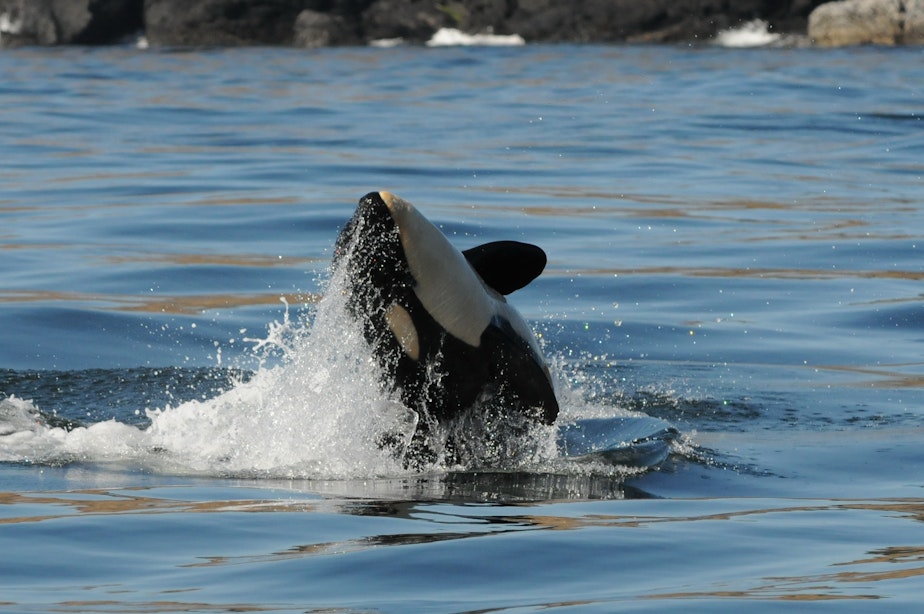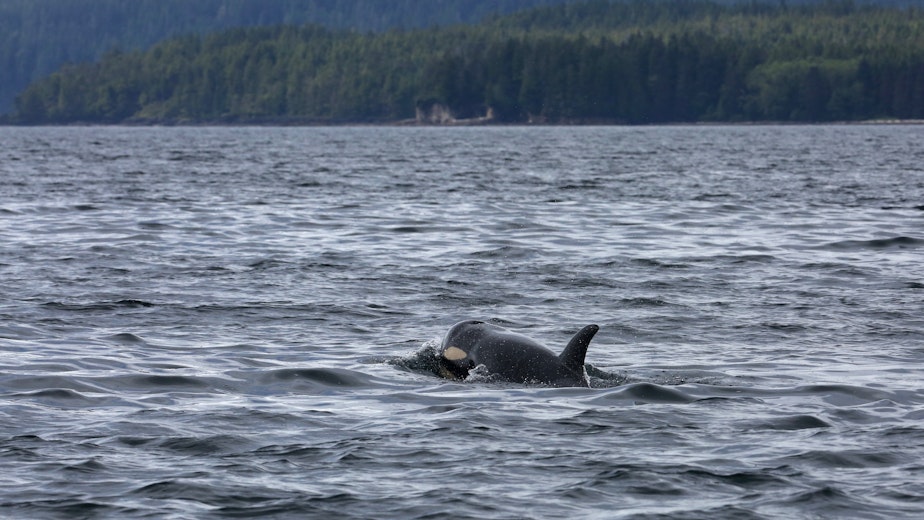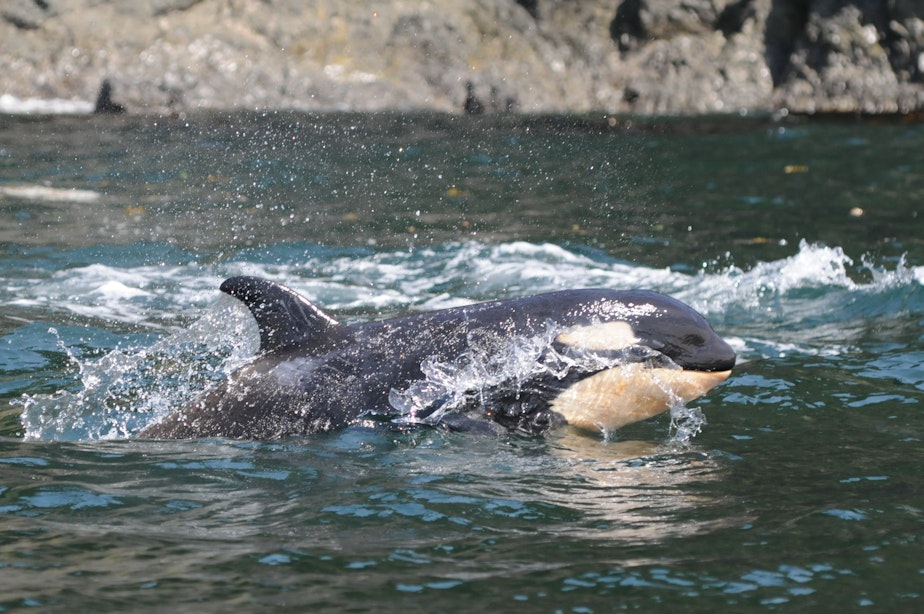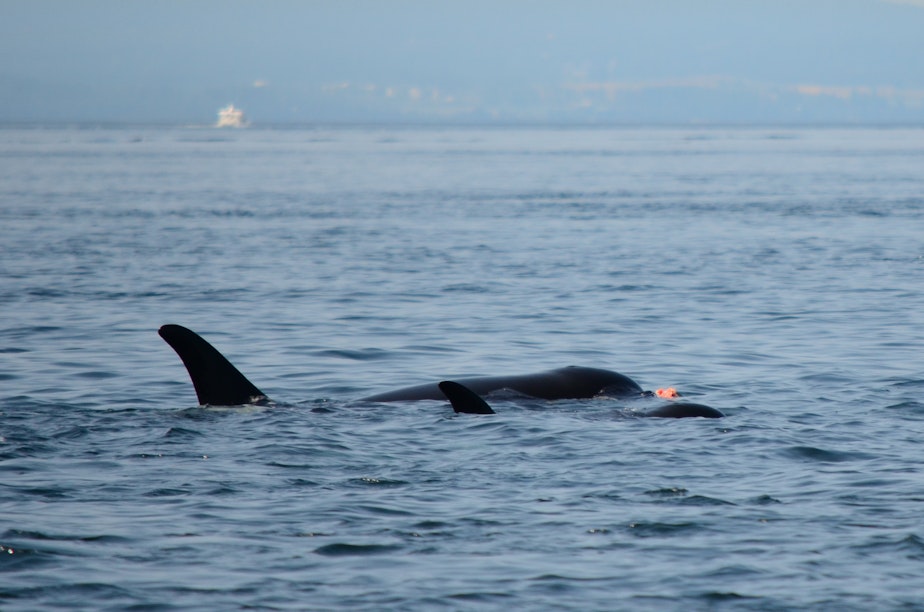Researcher declares missing orca dead, but U.S. officials won't give up search

Another day of intensive searching in Washington and British Columbia waters has failed to turn up the small black dorsal fin of the orca known as J-50. A leading U.S. whale researcher said he now presumes that the emaciated young whale is dead.
Ken Balcomb with the Center for Whale Research has been handling demographic data on the southern resident killer whales, keeping tabs on their births and deaths for decades.
He made the call in a press release Thursday afternoon, six days after the last confirmed sighting of the 3.5-year-old whale.
"Watching J-50 during the past three months is what extinction looks like when survival is threatened for all by food deprivation and lack of reproduction," the release states.

Response teams in both the U.S. and Canada have been following the sick, young orca for months, even treating her with antibiotic darts.
A whale watch boat with Puget Sound Express documented the J, K and L pods all gathering together at Race Rocks, near the southern tip of Vancouver Island, on Thursday. But they saw no sign of J-50, who was last seen on Friday.
But federal officials said they're not giving up their search for the young whale or their plan to capture and treat her medically.

Thursday's search effort included at least 10 boats, a U.S. Coast Guard helicopter, floatplanes and onshore observers on both sides of the border.
"I'm not going to judge his conclusion, but we're still looking," National Oceanographic and Atmospheric Administration Michael Milstein told KUOW Thursday night. "We're not going to leave a chance that she's out there and we haven't found her."
Milstein said NOAA has not determined how long it will keep searching for the missing whale. He said NOAA benefits from Balcomb's many years of experience with the region's orcas.
If J-50 is dead, the endangered southern resident killer whale population will have dropped to just 74 animals.
Whale experts point to a shortage of salmon, toxic pollution and vessel noise as leading causes of the orcas' decline.

"Extinction of this population is looming," the Center for Whale Research's mournful press release states, "while the humans convene task forces and conference calls that result in nothing, or worse than nothing, diverting attention and resources from solving the underlying ecological problems that will ultimately make this once-productive region unlivable for all."
Though the original meeting agendas might have to be broadened, NOAA has scheduled public meetings on its plan to capture, treat and release J-50 at 7 p.m. Saturday at Friday Harbor High School on San Juan Island, and 1 p.m. Sunday at the University of Washington's Haggett Hall in Seattle.




